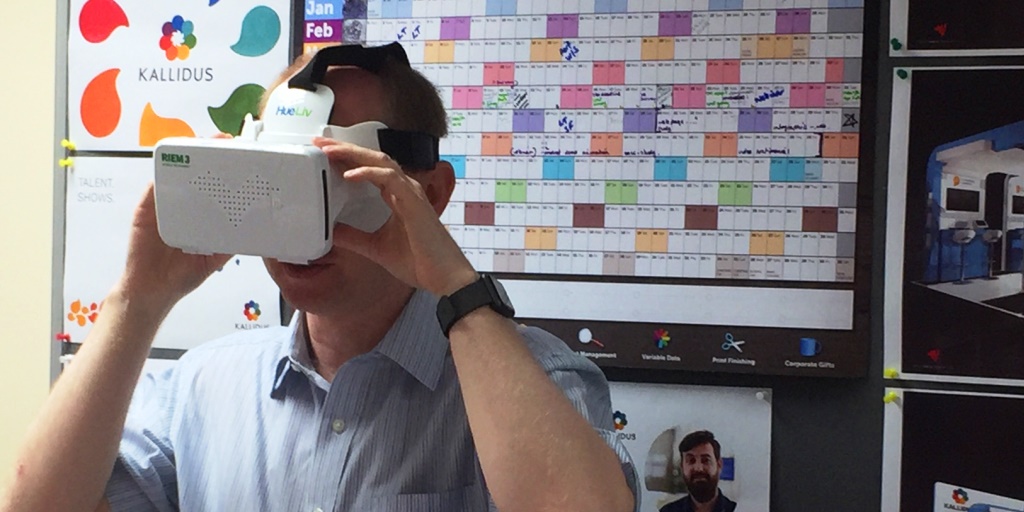
Nine out of 10 organisations plan to use virtual reality for L&D, shows Kallidus study
The UK’s largest study into the use of virtual reality (VR) in learning, published today by award-winning learning and talent management provider Kallidus, shows VR has captured the imagination of L&D professionals and could prove to be the next big transformational learning technology. The study reveals that 91% of L&D professionals plan to use VR for learning in their organisation, with over a third planning to roll out VR over the next three years.
Kallidus surveyed over 200 learning L&D professionals to find out what they really think about using VR for learning. 95% of respondents said they see VR as being useful for enhancing L&D. Only a small minority (8%) feel VR is ‘just hype’; 81% think it has ‘real potential’ for learning, and a further 11% are prepared to go one step further, calling VR out as the ‘next big thing’.
The survey reveals that over half (53%) of respondents have VR at the top of their list as the next new mode of learning they most want to implement, ahead of virtual classrooms, mobile learning, games-based learning and social learning in terms of priority. Just 2% of respondents said their organisation is already using VR for training.
Said Tim Drewitt, Product Innovator at Kallidus: “Although only a third of the L&D professionals we surveyed have had any hands-on experience of VR, the vast majority are very excited about its potential to add something special to the learning mix. Time will tell, but it’s possible that this exciting immersive technology could be adopted faster than previous new learning approaches and may prove to be as game-changing in learning as the advent of the PC.”
The top three subject areas that L&D professionals would most like to see VR being used for within their organisations are: technical skills development (64%), health and safety training (54%) and onboarding/orientation (41%). Encouragingly, L&D professionals are thinking beyond hard skills development and can also see the potential VR offers for developing interpersonal, customer service, sales and leadership skills.
Respondents perceive the biggest benefits of using VR to be: helping to create a more engaging learning experience (89%); making high-risk or impractical training achievable (84%); and helping the organisation to be more innovative (81%).
Philip Pyle, Sales and Marketing Director at Kallidus added: “The survey highlights that the learning profession doesn’t seem to be daunted by VR. Instead it sees it as a great opportunity to offer learners something truly engaging and innovative at a time when many internal corporate functions are struggling to catch up with consumer-grade technologies that increasingly feature in people’s everyday lives.”
Respondents agreed that perceived cost (73%), lack of knowledge on how to use VR (61%) and lack of cultural appetite (38%) could potentially hold the learning profession back from adopting VR. However, as VR equipment and content creation costs continue to fall, momentum to explore VR’s role in training is likely to continue to grow.
the full survey report “Virtual Reality: The next big transformational learning technology” which also includes a 10 step plan to get started with VR, is available to download at http://www2.kallidus.com/VR-survey-report
- ends -
Note to editors about survey data
Kallidus conducted an online survey of 206 learning professionals (a mix of directors, managers, advisors/consultants and executives/administrators) across a broad range of company sizes and industry sectors during June 2016. Full details can be found in the report.


